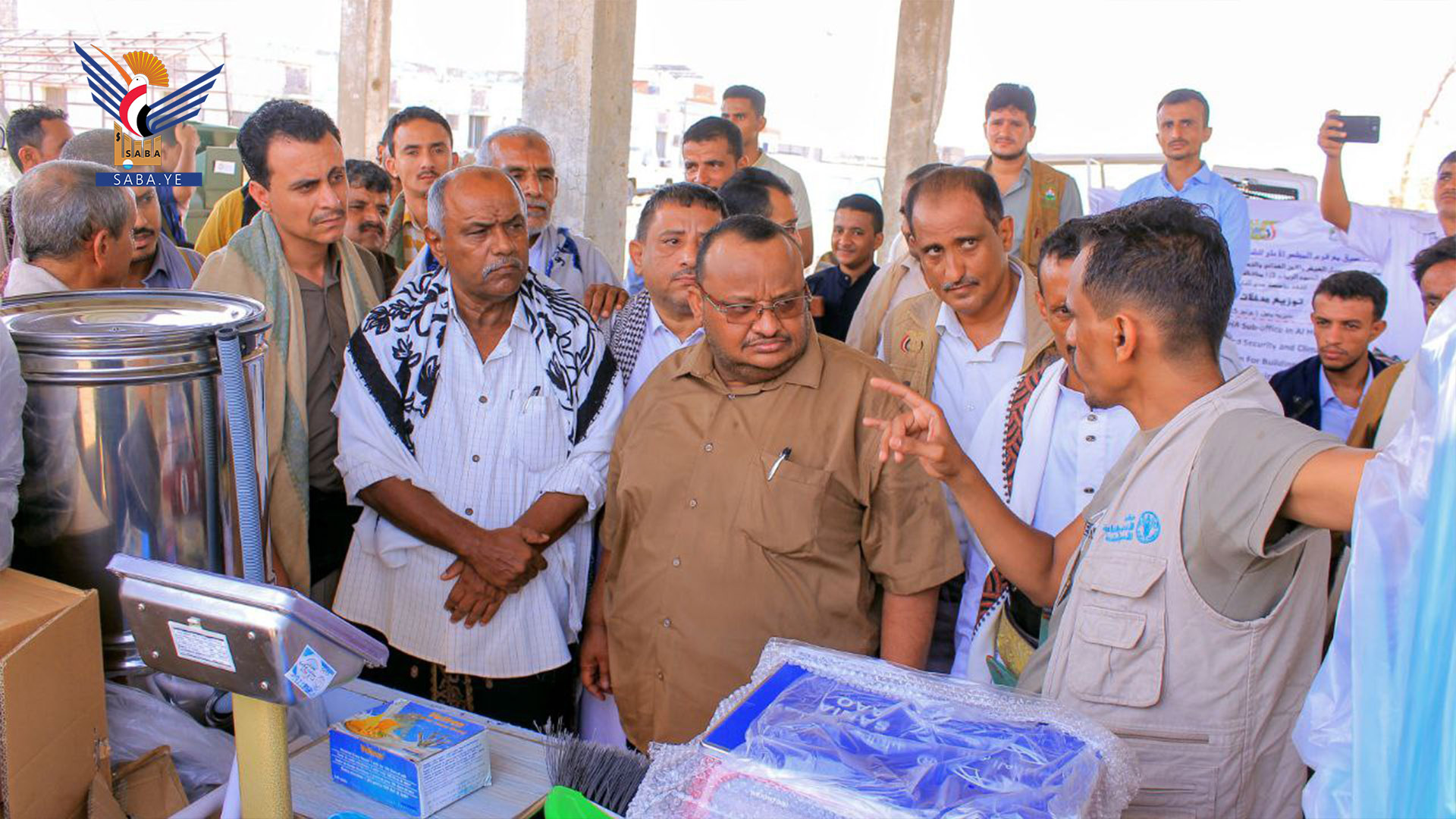Al-Hodeidah – SABA
Mohammed Halaisi, Deputy Governor of Al-Hodeidah for Service Affairs, today launched the distribution of milk production supplies and agricultural processing equipment to 653 beneficiaries in the Bajil district.
This initiative is part of the project titled “Joint Efforts to Support Food Security and Climate Adaptation – Rural Resilience 3”, implemented by the Sada Foundation for Construction and Development.
The distribution included milk production inputs for 473 beneficiaries, broken down as follows:
- 15 beneficiaries representing dairy processing units,
- 28 beneficiaries within small production groups,
- 80 large-scale producers,
- 350 small-scale producers.
In addition, 180 beneficiaries in the areas of Bajil city, Al-Jumadi, and Al-Khalifa received agricultural processing inputs.
Deputy Governor Halaisi emphasized that the launch of this distribution effort is a direct result of integrated cooperation between official agencies and civil society organizations to support rural communities and strengthen food security in the face of current challenges.
He noted that the project aligns with the strategic direction of the revolutionary leadership and the Supreme Political Council in promoting sustainable agricultural and rural activities. It also reflects the province’s commitment to revitalizing the productive sector and achieving self-sufficiency—particularly in agriculturally capable districts.
Ali Hazaa, Head of the Tihama Development Authority, stated that this input distribution is part of a comprehensive plan to enhance rural community capacity to tackle food security challenges. This is done by enabling beneficiaries to engage in milk production and local agro-processing, which ensures sustainability and tangible benefits for the families involved.
Hazaa added that the Authority is working to expand partnerships with development organizations to ensure the continuity of support and broaden its impact across other rural districts in need. This contributes to building communities resilient to climate change.
For his part, Saleh Atifah, Director of the Office of Economy, Industry, and Investment in the province, explained that supporting such a large number of beneficiaries with milk production and processing tools contributes directly to revitalizing the local economy. It also empowers productive families to improve their tools and the quality of their products.
He stressed that this targeted intervention is one of the most important programs driving the rural economy. It helps create employment opportunities and improve livelihoods, calling for continued initiatives of this nature to reach broader areas and generate lasting development impact.
Meanwhile, Abdulmoneim Al-Rifa’i, Director of Bajil District, praised the efforts behind the project and highlighted the importance of expanding sustainable development programs, which play a key role in supporting community cohesion and boosting local resilience in the face of economic crises.
He added that distributing milk production inputs and agro-processing equipment provides vital support to productive households, enhancing their livelihoods and contributing to economic stability in the district. He affirmed the local authority’s commitment to facilitating the implementation of such projects and providing all necessary support to ensure they reach the actual beneficiaries, thereby maximizing positive, sustainable impact in rural communities.
Lastly, Bakr Hadi, Project Manager for Rural Resilience 3 at the Sada Foundation, said the project aims to strengthen rural communities’ ability to withstand climate and economic challenges by supporting agricultural value chains and sustainable production activities—with a special focus on milk production and agro-processing.
He noted that the intervention in Bajil district stands as a successful example of synergy between institutional and community efforts, and confirmed that the Foundation will continue implementing the next phases of the project according to a comprehensive plan designed to meet the needs of the most affected groups and contribute to food security and social resilience.

| more of (Local) |




